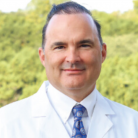Common Reasons People Are Disqualified From Getting Plastic Surgery

When considering plastic surgery most perspective patients do a ton of research into their desired procedure; learning vital information related to results, recovery, and procedure cost. While its great for patients to learn all they can about the surgery, one of the most important things patients should determine at the beginning of this research is if they truly are a good candidate for the procedure.
Since most plastic surgery procedures are elective in nature, some people may be surprised to find out that they can be disqualified as a candidate. If you’re in the early stages of considering plastic surgery, this post will help you determine if you are a good candidate for plastic surgery.
Importance of Being a Good Candidate for Plastic Surgery
Being considered a good candidate for plastic surgery has two distinctive perspectives. First, you should be in good health. This is important due to the use of general anesthesia and to ensure that you can fully heal after the procedure. Second, you should have a healthy motivation for having cosmetic surgery. While plastic surgery is linked to increased happiness, no procedure can overcome the effects of low self-esteem, help you have a healthy relationship, make someone fall in love with you, or bring about professional success. Plastic surgery can, though, help address any specific concerns that prevent you from being your best self.
Common Factors That May Disqualify a Person from Plastic Surgery
Since cosmetic surgery is not medically necessary, plastic surgeons have the right to refuse to perform any procedure or accept the patient. When deciding a patient’s candidacy, the surgeon will look and numerous factors including the following:
Underlying Health Issues
As with any type of surgery, the patients overall health is a key factor to consider. Many medical conditions, such as diabetes, anemia, venous insufficiency, and hypertension, increase the risks of surgery. Your surgeon may recommend cosmetic procedures that carry less risk or that you delay the surgery or opt not to perform the procedure.
High or Unstable BMI
A high or unstable body mass index (BMI) indicates that you may have excess fat in your body, and this increases the risk of complications during and after your procedures. People with a high or unstable BMI may heal slower than those who are at a healthy stable weight. If you have sleep apnea, your breathing may slow down too much while under anesthesia and/or it may take you longer to recover from the effects of anesthesia. Heart, liver, and kidney function also affects how well your body metabolizes anesthesia and medications. Ideally, you should maintain a stable, healthy BMI for at least 12 months before having plastic surgery.
Unrealistic Expectations
An experienced plastic surgeon uses advanced techniques to correct aesthetic concerns, yet there are limitations to what can be achieved. Your body style plays an important role in the outcome of your procedures. The goal of plastic surgery is not to mimic the bodies and faces of other people, but to make relatively minor adjustments that enhance your individual features. You can find inspiration from friends, family, and celebrities, but it is unrealistic to expect any type of cosmetic procedure to make you look exactly like those people.
Motivations for Plastic Surgery
Think carefully about your motivations for electing to have plastic surgery. Unfortunately, many patients choose plastic surgery for the wrong reasons, and an experienced surgeon is often able to spot these motivations. The best reason to have a cosmetic procedure is for yourself. Never have cosmetic surgery for another person.
History of Surgical Complications
A history of you having complications with previous surgeries provides your surgeon with insights as to any increased risks for your cosmetic procedures. This may include wound infections, excessive scarring, difficult recovery, excessive bleeding, and blood clots. Because plastic surgery is elective, your surgeon may recognize that the risks are greater than the rewards and opt to not perform the desired procedure.
Interest in Having Children
Pregnancy and childbirth result in changes to a woman’s body. Your hips widen, your breasts swell with milk, and you may lose some elasticity in your skin. If you are planning to have children, it is best to delay certain types of plastic surgery procedures rather than need a second procedure in the future.
Being Too Young
While many people think you can be too old for plastic surgery the inverse is more prevalent, sometimes patients are too young for a procedure. You should be at least 18 years old before having plastic surgery. Your body is still developing until you reach adulthood, and having plastic surgery too soon may result in some less-than-ideal outcomes. Even with parental consent, a surgeon may determine that you are too young physically, emotionally, and mentally for plastic surgery.
Patient/Surgeon Connection
Above all else, there should be a great deal of comfort between the patient and the surgeon. It is vital for both patient and surgeon to trust and respect each other. The patient must be willing and able to disclose any substance/drug use/abuse. This ensures both are aligned in terms of the treatment plan and post-surgery expectations. Indeed, some surgeons may recommend patients see a different provider if there is not a good patient to surgeon fit.
Inability to Follow Aftercare Instructions
All plastic surgery procedures require some period of downtime, and you will need to heal at home. Some procedures even require stays in the hospital. Your surgeon will explain the aftercare requirements, which may include bandage changes, monitoring for signs of infection, rest, and restricted activities. Be honest with yourself and your surgeon about your ability to follow the instructions.
What Makes for an Ideal Plastic Surgery Candidate?
While there are several factors considered by a plastic surgeon, there are five main areas that are priorities. First, you should be in good health. Second, you should be prepared for the physical, emotional, and mental aspects of cosmetic procedures. Third, you should understand and accept the risks that accompany plastic surgery. Fourth, you need to be committed to following all instructions from your surgeon. Fifth, you should understand the total cost of the procedure including incidental/secondary costs such as time off work, assistance at home, boarding of pets, medical supplies, medicines, etc.
My Surgeon Says I Cannot Get Surgery. What Can I Do?
If your plastic surgeon determines that you are not a good candidate for plastic surgery, you have some choices to make. First, ask questions to understand the reasoning behind the surgeon’s decision. Do so in a respectful manner with the intent being to gain education and information. If the reason for your disqualification is a fixable health issue, such as too high of a BMI which can be rectified by dieting and exercise, patients should ask what is necessary to be declared a good candidate. If the surgeon is recommending that you delay the surgery, ask what steps you can take to have the procedure in the future. Second, ask the surgeon if there are any alternative options available. You may be a better candidate for a less invasive non-surgical procedure that will achieve your goals. Third, get a second opinion. Schedule a consultation with another plastic surgeon. Be cautious, though, with surgeons who over promise. The goal of a second opinion is to gather more information so you can make an informed decision about your health and well-being.
Disclaimer: The contents of the Westlake Dermatology website, including text, graphics, and images, are for informational purposes only and are not intended to substitute for direct medical advice from your physician or other qualified professional.
